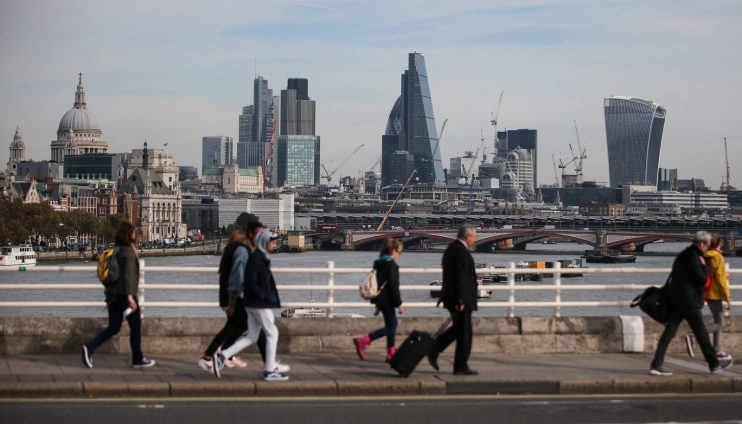Unlocking the UK could trigger 6 years of economic growth in just 10 months

Can you remember what you were doing on the eve of the pandemic? It should be easy to recall. But what were you doing in early 2014? Why do I ask?
Well, in a few weeks’ time, as lockdown ends, the economy is likely to be to back to where it was in the first half of 2014.
Indeed, at the end of this March the economy will have hit its bottom in this latest phase of the pandemic. There is nothing particularly dramatic about 2014, other than the fact that our economy has taken such a significant hit that, a year after this crisis began, it will be back at the same point as it was then.
From this Easter, unlocking will be the trigger for a strong recovery. More significantly, by the beginning of next year, the economy will have rebounded to be back to where it was on the eve of the pandemic.
So, over the next ten months, we could witness the equivalent of six years of economic growth. Even though those years from 2014 to 2020 may have seen modest growth, that is still a strong rebound by any measure. It will continue into next year, too.
The outlook for the economy this year depends upon many factors, including: an easing of the health crisis that will be the trigger for the economy to emerge from its crisis; how cautious or optimistic people and firms are as the economy recovers; and keeping taxes and interest rates low. Taking each of these in turn, suggests reasons to be optimistic.
The health situation, while poor, is improving significantly with a fall in infections, hospital admissions and deaths and the UK’s highly successful vaccination roll-out. As the Prime Minister has indicated, he wishes to avoid another lockdown, hence he is proceeding cautiously, unlocking in stages until, on current plans, full reopening occurs on 21st June.
The crisis will likely trigger a change in behaviours, impacting travel, work and spending patterns. But, we have already had an insight into what lies ahead for the nation’s economic performance.
Last year, the economy crashed in March and April, but then started to recover from May onwards. Initially the rebound was strong, before fears of a second wave dampened activity.
Large parts of the service sector weathered the pandemic strongly, and online retail boomed. As people stayed home and those lucky enough to keep their job worked remotely, excess savings reached £125 billion by last November. Months later, they will have risen further still.
Swathes of the economy did suffer badly. This was evident in rising unemployment, the fall in payrolls particularly for the young and unqualified and was also seen in the collapse of activities across a number of sectors, from the arts to tourism.
And although the current lockdown will trigger a contraction this quarter, it is likely to be far less than was initially feared, perhaps down between 1 to 2 per cent.
Far more businesses have been open in this lockdown, and employment payrolls even rose in January.
During the course of 2021 I expect the economy to return rapidly towards pre-crisis levels.
Of course, it is unclear how freely people will spend away those excess savings, or whether firms with health balance sheets will invest. But there is pent-up demand among consumers.
Savings materially exceed many people’s desired levels. And as we saw after the first lockdown, before the second wave hit, there was a far quicker rebound than expected. Thus, on the upside, the opening up will trigger more activity and probably a burst in consumption this summer in social activities, as the different stages of unlocking proceed.
The focus now must be on limiting unemployment. Now at over 1.7 million, it could rise to just under 3 million. Another concern is the high debts being born by many small firms, as these will limit their ability to grow. Policy could help in both these areas. Phasing out furlough until after the economy has recovered and business confidence has risen may limit the loss of jobs, while writing off the government backed loans to small firms may be an option, helping them bounce back.
In his Budget on Wednesday the Chancellor should avoid stimulating or squeezing the economy and focus instead on support. He should be wary of further economic stimulus given the strong forces in favour of a rebound. Squeezing the economy through premature fiscal tightening should be avoided too. The focus should be on targeted support, helping those people and sectors impacted most by the pandemic.